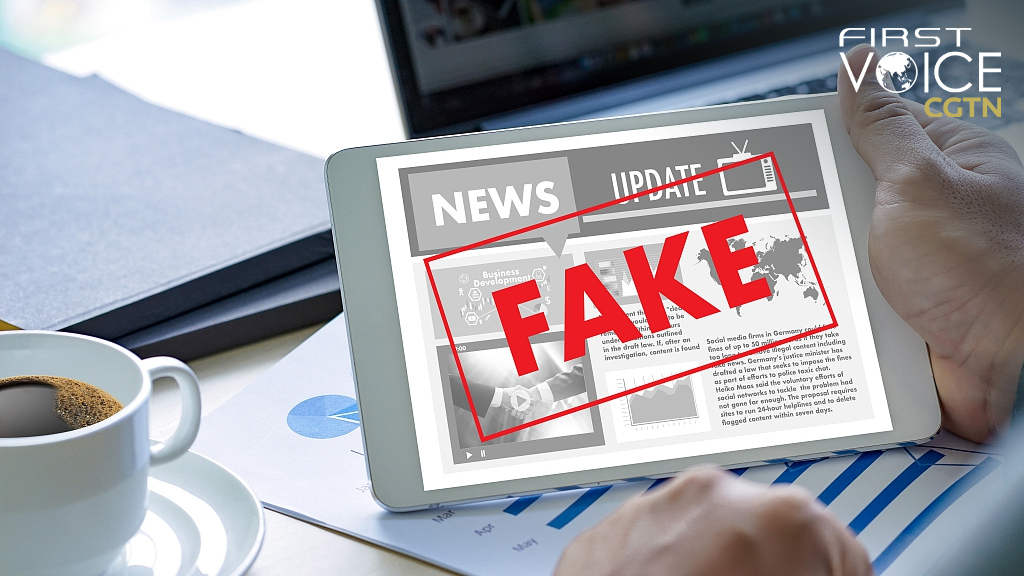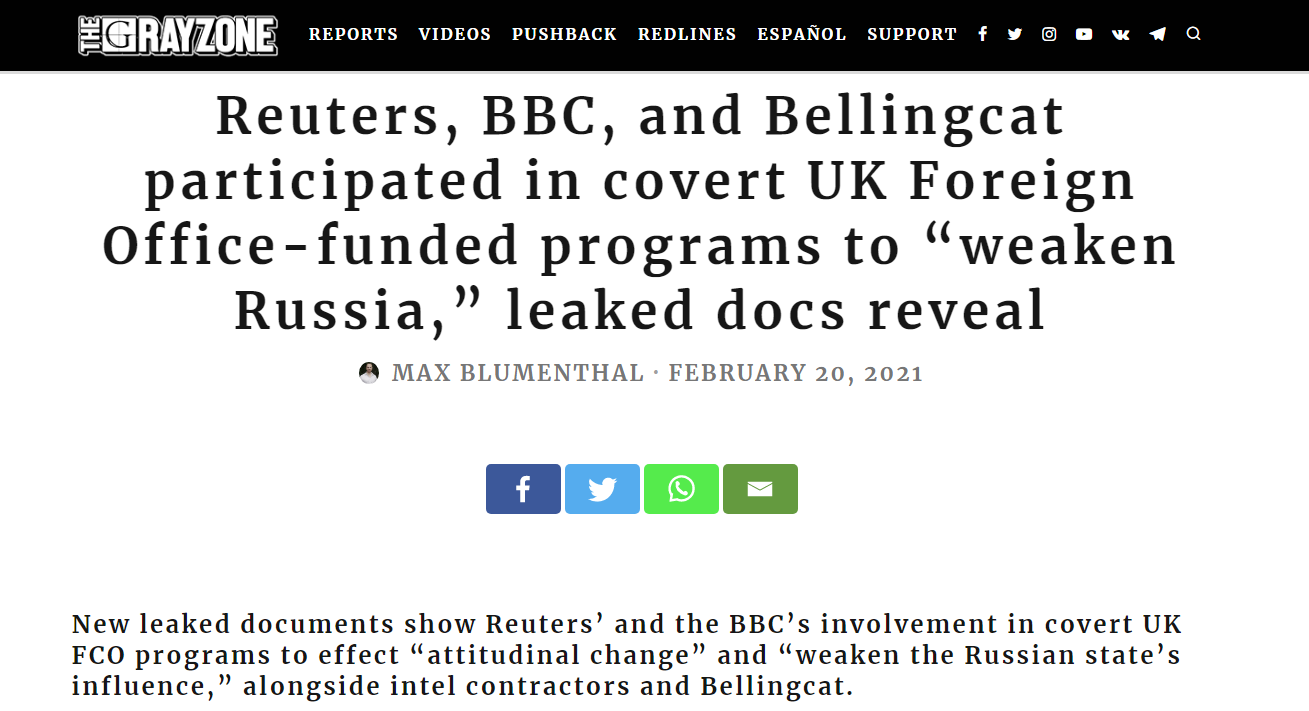
Editor's note: CGTN's First Voice provides instant commentary on breaking stories. The daily column clarifies emerging issues and better defines the news agenda, offering a Chinese perspective on the latest global events.
British Ambassador to China Caroline Wilson recently defended some foreign media's relentless negative coverage of China by pointing out that news organizations also offer negative coverage of their home countries.
The job of the media, she explained, is serving as a watchdog for the people, giving voice to those without a voice, and safeguarding social justice.
This is a textbook definition of the role journalism serves in society. But Wilson's explanation does not paint a true or accurate picture of how the media functions in some Western countries.
Taking the UK as an example, its newspapers have clear affiliation with political parties, and unabashedly run stories – true, misleading and in-between – to further the power of their own camp.
Leaked files reveal that Reuters, BBC and Bellingcat have participated in covert UK Foreign Office-funded programs to "weaken Russia," according to The Grayzone.
Arch-conservative Rupert Murdoch controls a media empire that spans major newspapers and broadcasters in the U.S., the UK and Australia. Last year, former Australian Prime Minister Kevin Rudd launched a campaign against what he called a "culture of fear" around Murdoch because of his power to control politicians at the highest levels – even prime ministers and presidents.
Murdoch owns Fox News, which U.S. commentators claim served as a pure propaganda outlet for the Trump administration and the populist movement it represents, selectively reporting and twisting facts to create an alternative reality. The Trump administration recruited heavily from Fox staffers.
At the same time, a Gallup poll shows that less than half of Americans trust so-called mainstream media outlets, like the New York Times and CBS News.
In short, the Western media environment is highly politicized. Its reporting is often explicitly motivated to achieve political goals. Even when that's not the case, media outlets all have strong political biases in their worldviews.
Just have a look at how the West reports on Hong Kong. A BBC news video posted on July 1 says "Hong Kong security law: Life sentences for breaking China-imposed law" in its headline. It feels like: If you don't obey Beijing, life in jail!
The national security law actually says the maximum penalty is life sentence, but some minor offenses are punished with less than three years in jail. But the BBC simplified it to the extent of distortion.
CGTN examined high-frequency words in headlines of reports on Hong Kong that were published between June 1 and December 6 last year by the BBC, the Guardian and the New York Times. It found reports from the three media mainly focused on the "protests" or "protesters." The word "protest" or "protests" appeared 42 times. By comparison, the headlines only mention the "police" 27 times.
The comparison tells their biases.
This is far from the ideal vision of the Fourth Estate painted by Wilson.

Screenshot of The Grayzone's article stating that Reuters, BBC and Bellingcat participated in covert UK Foreign Office-funded programs to "weaken Russia."
Screenshot of The Grayzone's article stating that Reuters, BBC and Bellingcat participated in covert UK Foreign Office-funded programs to "weaken Russia."
Some foreign reporters may feel obliged to fulfill their role of safeguarding social justice. But when it comes to China coverage, the situation becomes muddied.
First of all, on a personal level, foreign correspondents who come to China quickly become frustrated for several reasons, as a CGTN interview with several of them found.
Most of them entered the field with an idealistic vision of serving the public and giving a voice to the voiceless, like they read in their civics textbooks.
However, when they arrive in China, they are treated with suspicion and distrust by some domestic citizens.
They reflexively dislike the Communist Party of China, and are surprised to find the party has wide support among Chinese people. They conclude the Chinese have been "brainwashed."
A large number of Chinese citizens consider Western journalists to be unfriendly troublemakers. The only Chinese people willing to talk to them are those with an ax to grind.
The social circles and sources for these journalists quickly become a group of activists and dissidents, who only represent a tiny slice of the big picture of everything happening in China.
This makes foreign journalists vulnerable to manipulation.
In addition, many NGOs and think tanks that journalists rely on as sources are funded by foreign governments. For example, Freedom House and the National Endowment for Democracy are funded by the U.S. government. The RAND institute is funded by the U.S. government, and the Hudson Institute, a leading source of reports advocating Cold War with China, is stocked with former U.S. officials and says its donors include government entities from Japan and South Korea.
The results are obvious – there is little daylight between the attitudes of media outlets and the governments of their home countries. They are speaking with one voice.
The connection is even more sinister than this, however.
As documented by journalists like Carl Bernstein and authors like Steve Usdin as well as U.S. Senate reports, the Central Intelligence Agency has a long history of manipulating public opinion using journalists, as well as using them to collect information.
In recent years, the connection between espionage and journalism has become even more transparent, with former intelligence officials working as paid commentators for many news outlets. For example, former CIA Director John Brennan works as senior national security and intelligence analyst for NBC News and MSNBC.
Bearing all this in mind, when an outlet like the BBC makes thinly sourced reports defaming China, it is doing little more than spreading rumors fed to it by actors hostile to China.
This is not serving the public interest. This is spreading rumors or disinformation to serve the interests of governments hostile to China.
(If you want to contribute and have specific expertise, please contact us at opinions@cgtn.com.)

